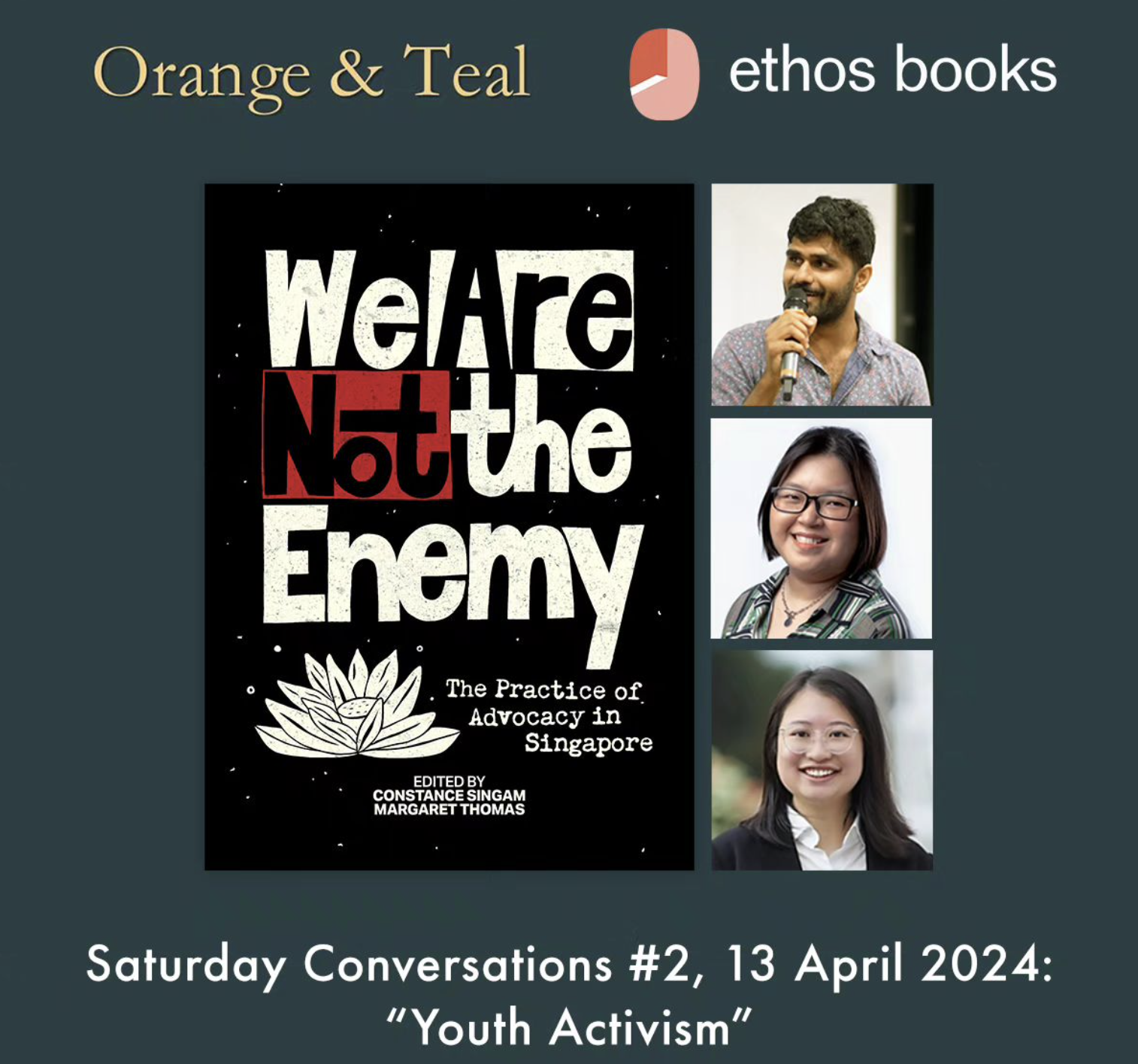I won't say it's been a quiet week, but it has been quiet-ish for the sort of news that I look out for.
(1)
The Criminal Law (Temporary Provisions) Act is like false advertising because it's not very temporary at all. I forgot to include this in last week's newsletter, but the CLTPA was extended for another five years, allowing the government to detain people allegedly involved with secret societies or syndicates without trial. This is the 15th time this law has been extended since 1955—a "temporary provision" older than the sovereign state itself.
We, the Citizens also signed this civil society statement ahead of its latest extension:
On 7 March, the Minister of Home Affairs introduced a bill in parliament to renew the Criminal Law (Temporary Provisions) Act (“CLTPA”) for another 5 years with effect from 21 October 2024. The 2nd reading of this bill takes place today (2 April 2024). If the bill is passed, it would be the 15th time the CLTPA is renewed since its enactment in 1955. As of today, this law has been in existence for 69 years and actively enforced. The minister is not accountable to the people and the number of those detained since 1955 is not known.
The CLTPA empowers the Minister of Home Affairs to detain people without trial for alleged “criminal activities”. The minister claims that arrests and detentions are made in the “interests of public safety, peace and good order”. Such orders for detentions are renewable on an annual basis and for indefinite periods of time.
The Minister is also possessed of the power to order a detainee to be released and place him under a supervision order of up to 3 years under the CLTPA. Anyone convicted of a list of specified offences faces up to double of the maximum prescribed penalty for the offence which may include caning.
We, the undersigned, oppose indefinite detention without trial in any form. The period of such detentions may exceed the maximum punishment provided under ordinary criminal law. The exercise of such draconian powers without the knowledge of the public and without judicial oversight, is an affront to open justice and the rule of law.
In 2018, the CLTPA was drastically amended to make the minister’s decision final. This was a direct result of the Court of Appeal ruling in 2015 that found the detention of an alleged soccer match-fixer Dan Tan unlawful. In recent years, we have seen the extensive expansion of policing powers and a significant growth in police resources. By renewing the CLTPA, is the government admitting that their whole policing arsenal is ineffective?
When the CLTPA was renewed in 2013, the then 2nd Minister of Home Affairs S. Iswaran described the legislation as a tool of ‘last resort’. Today, the Ministry of Home Affairs calls the CLTPA an “essential and critical” tool for the government to take “swift and effective action”. Clearly, the use of the CLTPA is a lazy way of dealing with “lawlessness” if indeed Singapore is in such a deplorable state of development and not a first world country.
The CLTPA should not be renewed.
Signatories:
For the Children SG
Function 8
MARUAH
My Queer Story SG
NTU Financial Aid Friends
SG Climate Rally
Singaporean Campaign Group for the Academic Boycott of Israel
Student for Migrant Rights
Students for a Fossil Free Future
Think Centre
Transformative Justice Collective
We, The Citizens
Workers Make Possible
(2)
What is the Infocomm Media Development Authority's position on artists' intellectual property and generative AI? Singapore Unbound has expressed concern about a recent survey that the IMDA sent to people in Singapore's literary scene about the development of a new Large Language Model (LLM) trained with local sources.
Pointing out that the survey only gave people 10 days to respond, Singapore Unbound also writes that "[the] survey does not state anywhere that IMDA recognizes that the writings it is seeking are the intellectual property of the authors, or of the publishers to which the authors have sold the rights to their work" and "[the] survey does not commit itself to paying fair compensation for the use of all writings."
(3)
Singapore has cracked down on weapons sales to Myanmar—as we should. Thomas Andrews, the UN special rapporteur on the human rights situation in Myanmar, told Al Jazeera English that the Singapore government had responded "immediately" to his report, in which he'd stated that Singapore-based entities were key players in the weapons trade to Myanmar's brutal military. "My subsequent report to the Human Rights Council found that exports of weapons materials from Singapore to Myanmar had dropped by 83 percent," Andrews told AJE.
Got some more...
🤬 I don't subscribe to Haaretz and am paywalled, but this headline (and the sub-head) already says a lot: "At Singapore Airshow, the Gaza War Was a Selling Point for Israeli Arms Makers"

🧑🧑🧒🧒 Terence Tan has left the Workers' Party to focus on his career and family and support his wife He Ting Ru, who is an opposition MP.
🇻🇦 Pope Francis will be visiting Singapore in September. I wonder if he'll say anything about the death penalty while here? 🤔

Thank you for reading! As always, feel free to forward this weekly wrap to anyone you like, and spread the word about this newsletter!
